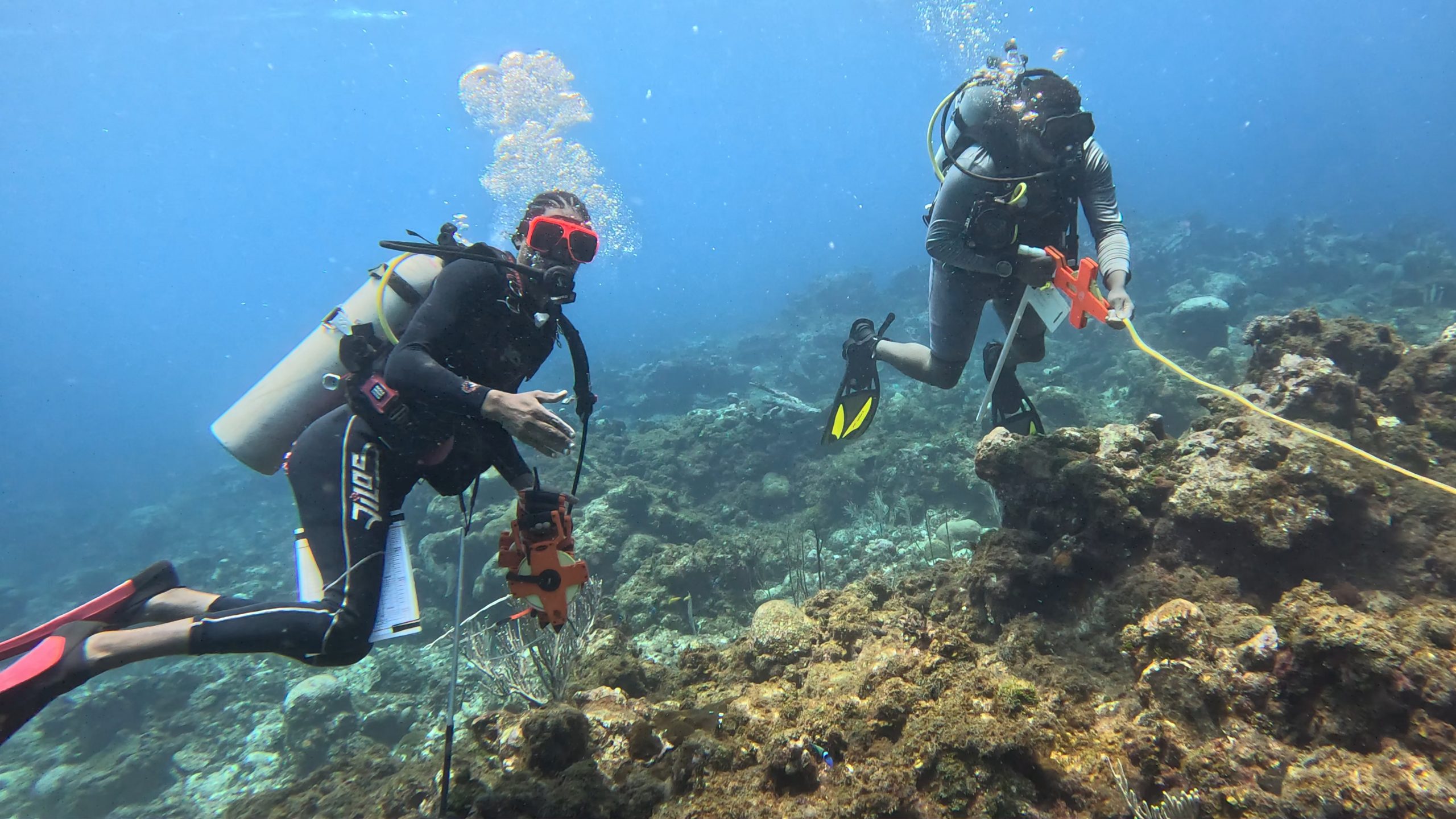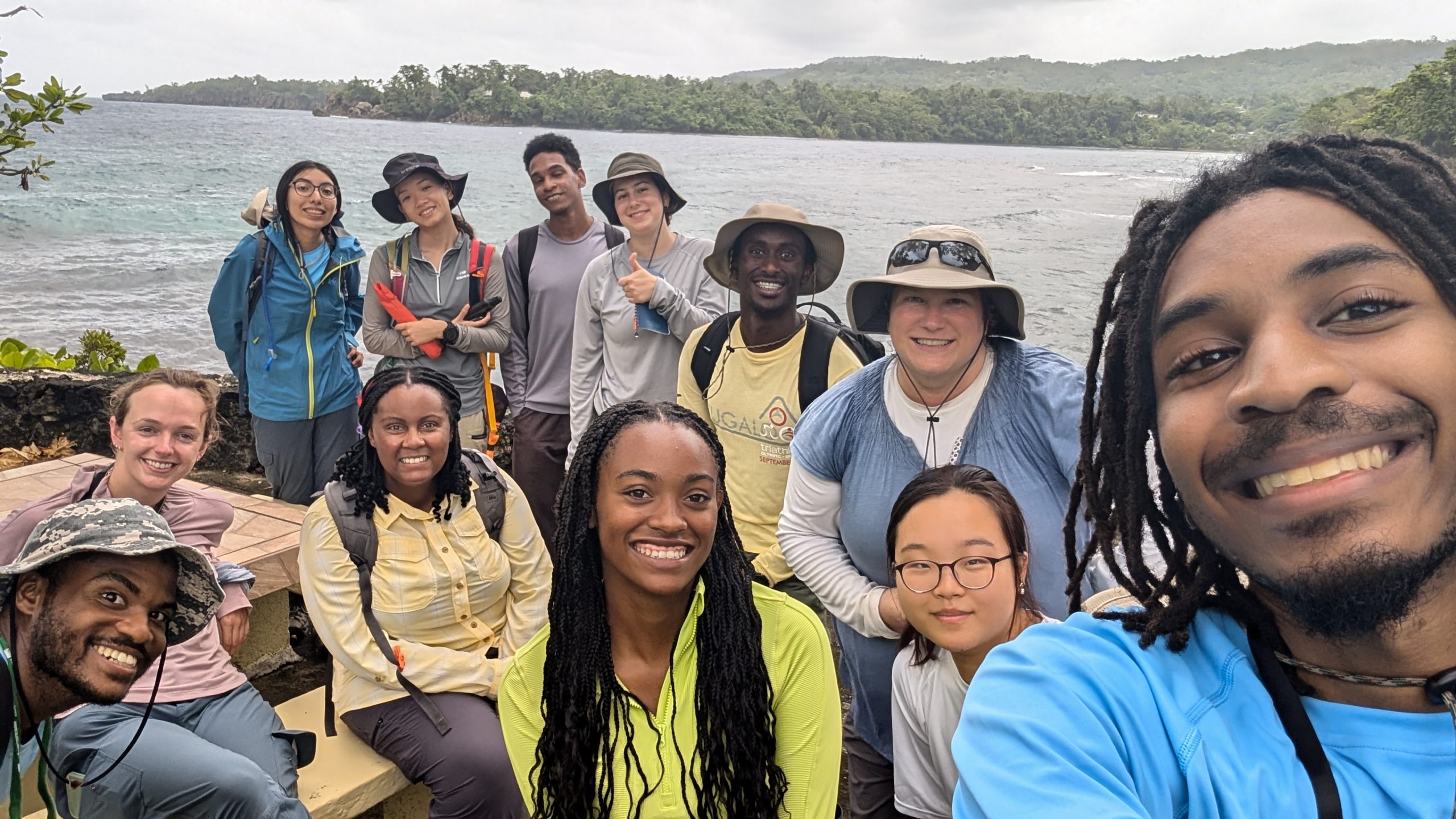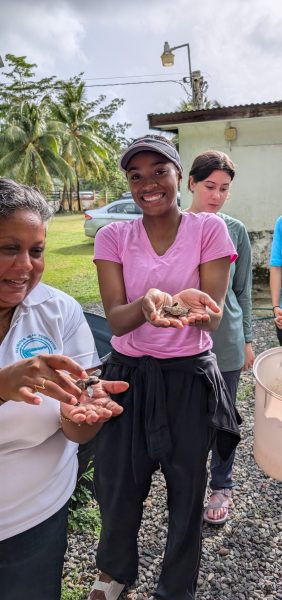Field Trip to Jamaica Shows Pathways into the Geosciences


During the summer, scientists at the Jackson School of Geosciences helped lead a cohort of six undergraduate students and four graduate students from across the U.S. and Caribbean on a nearly four-week research trip to Jamaica as part of the National Science Foundation’s GEOPAths GO program. The students all had backgrounds in the sciences — but for many, the geosciences were a new field.
One of the goals of the trip was to show students how their backgrounds in computer science, chemistry and other STEM subjects could be applied to a range of geoscience questions, said Rowan Martindale, an associate professor in the Department of Earth and Planetary Sciences and one of the trip mentors. Students contributed to ongoing Earth science research in reef paleoecology, paleoherpetology, hydrology, geochemistry and mangrove ecology.
“Basically, the idea is to find different ways to bring people to the geosciences,” said Martindale. “We want to provide pathways for undergrads from environmental sciences, biology, chemistry, physics and marine sciences to enter a geoscience graduate program.”

Martindale studies modern and ancient coral reefs. Many of the research projects involved collecting and analyzing samples from modern reef and beach environments and fossil outcrops. For example, to understand how the water quality of a reef environment changed during a day, students took part in a 36-hour sampling trip — where water conditions (light levels, temperature, acidity and oxygen levels) were logged every 15 minutes and water samples taken every two hours to assess how nutrient levels and carbonate chemistry changed. During another project on a rocky and crumbling Pleistocene-aged reef, the students braved a massive deluge to get the photographic and physical samples of a 130,000-year-old coral reef.
“I was absolutely blown away by how these students came together to do the science,” Martindale said.
The students also collected water samples and set up sensors in the trees for mangrove research led by Associate Professor Ashley Matheny, who is part of the GEOPAths team but was unable to go on the trip. They also practiced catching (and releasing) local anoles (a type of lizard) and analyzed cave fossils for biodiversity research led by Jackson School Assistant Professor Melissa Kemp, who is also part of the UT College of Natural Sciences.
Leah Turner, the program director for the Jackson School’s outreach programs GeoFORCE and GeoSTEM, also served as a mentor on the trip. Turner is leading the social science research component of the GEOPAths GO Jamaica program to evaluate how well the team is meeting its goals.
Joining the Jackson School team were Isaiah Bolden, an assistant professor from the School of Earth & Atmospheric Sciences at the Georgia Institute of Technology, along with researchers from The Ohio State University, Arizona State University, and institutions in Jamaica. Jamaican collaborators included researchers Denise Henry from the Alligator Head Foundation and Debbie-Ann Gordon-Smith and Camilo Trench from the University of the West Indies-Mona.
The trip was sponsored by a grant from the National Science Foundation’s GEOPAths program, which seeks to increase students studying the geosciences at the undergraduate and graduate levels through career-relevant experiences and community building.
Researchers will share the geosciences with a new cohort of students in 2025 and in 2026. Visit the Jackson School’s GEOPAths website for application details: https://www.jsg.utexas.edu/geopathsgojamaica/
The University of Texas at Austin
Web Privacy | Web Accessibility Policy | Adobe Reader

